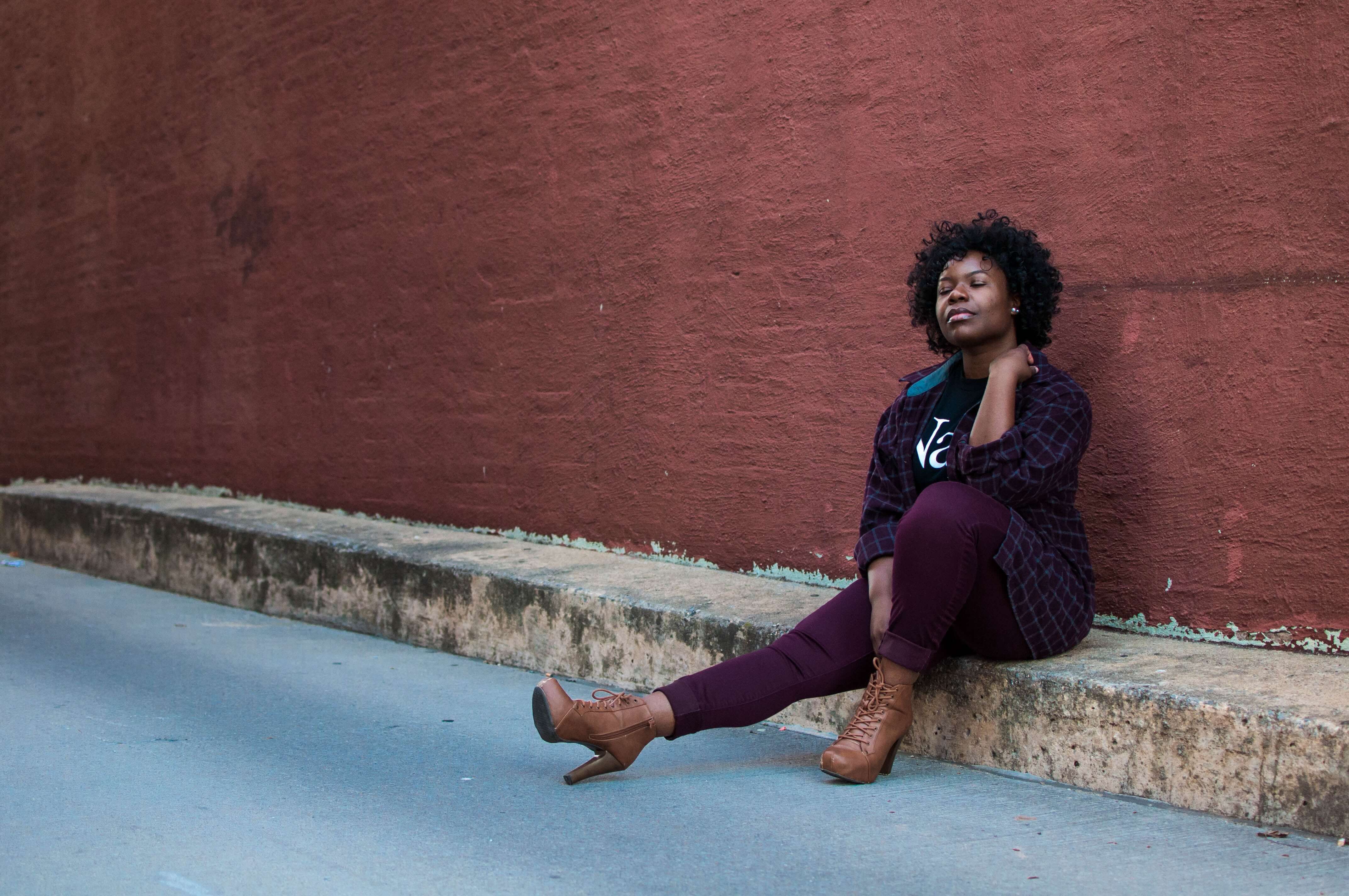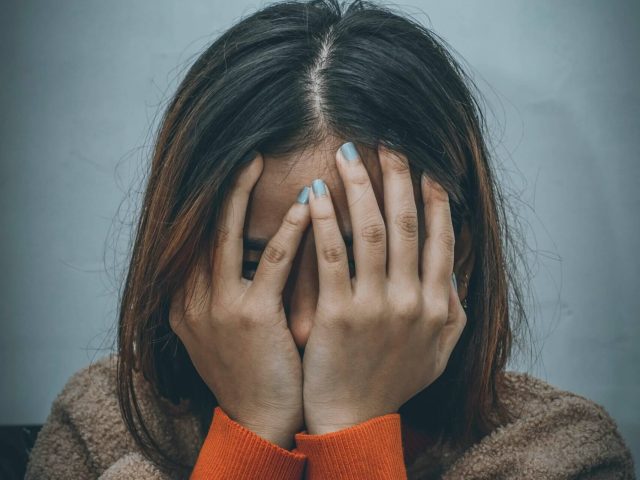When toxic behaviors began to appear in my relationship, I thought they were symptoms of my own struggles with my mental health conditions. Was I being too sensitive because I was having an anxious day? While in the throes of depression, I really should have been able to get out of bed and put on a smile, right?
Wrong. But, my partner made me feel all of those things.
It wasn’t until the end of my unhealthy relationship that I realized my Bipolar Type II diagnosis wasn’t the problem in my relationship – my toxic partner, who actively prevented me from doing what I needed to keep myself balanced, was.
At the time, I had written off many unhealthy behaviors as just being “in my head” because of my mental health condition and because, like most people, I had no idea what the signs of an unhealthy and increasingly dangerous relationship were. I later learned that if something feels off in a relationship, it is likely because something may be off.
And the truth is if the idea of advocating for your needs in your relationship makes you squirm as I did back then, then the unhealthy treatment you believe you’re experiencing is probably not your depression or anxiety–and it certainly is not “just in your head.”
It’s likely because you have a toxic partner–but how can you know for sure?
Knowing the difference between perceived mistreatment and it actually being so can prove difficult for those of us with mental health conditions but it’s not impossible. Check out these signs of an unhealthy relationship to help you learn the difference:
Unhealthy Relationships May Be Unusually Intense

Being in a relationship that isn’t healthy may start very innocently. It’s like a sweater with a pull. You notice one little spot in the fabric, and before you know it, the whole thing can unravel. When I was in an unhealthy relationship, my then partner and I were practically living together within a week of knowing each other.
I had no idea that this kind of intense behavior was one of the earliest signs of an unhealthy relationship. And because I was struggling with my mental health, I thought keeping my partner happy would solve all of the things I thought were wrong with me, but I was wrong about that.
When our mental health is out of balance, we crave stability, and though rushing into things with your partner may feel like a quick fix, it’s not. Child Mind Institute psychologist Dr. Alexandra Hamlet says, “It’s important to set ground rules in the beginning [of your relationship] to set a tone,” or boundaries that ensure the relationship moves at a pace you’re both comfortable with.
“Describing what you need, especially when it comes to mental health, helps you get on the same page [with your partner].” Dr. Hamlet says.
RELATED: 4 On-screen Romances that Portray Intensity as Love
Unhealthy Relationships May Feel Isolating

I’m an extremely social person. There’s a joke among my friends that I can make five new friends every time I step into a coffee shop. And they’re not wrong. What can I say? I thrive when I’m connected to people.
My ex knew this about me, so their first order of business? Get me to cut myself off from my social circles and depend on them completely. Though I had become noticeably less social, whenever my friends would ask, I would make up excuses for why I needed to cancel a night out and hang out with my S.O. instead.
Isolation is how unhealthy relationships are able to stay unhealthy and the first step to ending it is recognizing it. “If you’re starting to see yourself censor things with certain people who you know are usually helpful and compassionate, then you really know you’re in an unhealthy situation. Try to notice those changes in your own behavior,” Dr. Hamlet advises.
RELATED: What Emotional Abuse Really Means
Unhealthy Partners Are Manipulative

Manipulation is when someone tries to unfairly influence or control your actions and feelings in a way that benefits them. While that definition sounds pretty low-key, manipulative behavior is not. “In an unhealthy relationship, you may notice power imbalances build, or feel like everything depends on keeping your partner happy by putting your own feelings on the backburner. Oftentimes, in an unhealthy relationship, one party uses strategies to achieve their own goals and needs and those tactics are often ineffective at maintaining a healthy, stable union” Dr. Hamlet says.
And if you are already feeling insecure about your mental health, it’s a lot easier to give up your power or go with the flow to keep your partner happy — at least that was my experience. “You might start to think, ‘well who would want to be with me? Maybe I’m not good enough. There’s something wrong with me’ and start to expect and even welcome poor treatment,” Dr. Hamlet says.
RELATED: 5 Sneaky Behaviors That Are Actually Unhealthy

When I was dealing with depression while trying to decode my partner, it was hard to tell which the problem was. One of the first things my partner learned about me is that I was a therapist who was also very involved in charity work which led them to assume two things about me:
- I have a big heart and lots of empathy for people and suffering.
- I had access to a lot of money and resources.
The first time my partner manipulated me into lending them money, they spent an entire hour telling me how difficult it was to accept it. But not long after, things escalated to them asking me to pay their rent and even their child support. They distracted me from seeing these red flags by constantly singing my praises and telling me that I was the only person in their life who really cared. That made me feel good, despite my depression.
While it’s tempting to shrug off manipulative behavior, reflecting on things like that now are how I know for sure that it was my unhealthy partner, who knew exactly how to take advantage of my empathy, that was the issue in the relationship — not my mental health condition.
Unhealthy Partners May Gaslight You

I dated my unhealthy partner while working on my second master’s degree in counseling, so it’s ironic to me now that I didn’t even realize it when gaslighting had become a daily part of my relationship.
I’d approach my partner to talk about something that had upset me, like the time they said something disrespectful in front of my friends at dinner, and walk away feeling selfish for bringing it up in the first place. “Maybe what they said wasn’t so bad…maybe I was being overly sensitive,” I’d think to myself. I was never sure, and my partner liked it that way.
Gaslighting is an emotional abuse tactic that unhealthy partners can use to make you second-guess yourself. If it’s happening to you, you might think, “maybe I’m just overreacting” every time something your partner does makes you uncomfortable. Or you might find yourself apologizing for things that aren’t actually your fault.
RELATED: What I Wish I Had Known About Gaslighting Before It Happened To Me
Unhealthy Partners May Belittle You

My partner was a master at belittling me and that really came out when they found out I had anxiety and depression. They would make comments like, “You’re acting crazy again,” and “You’re being way too much right now,” that left me feeling like I needed to shrink, and stop talking about things I was having a hard time with.
Subconsciously, I started to agree with their put-downs and internalized the criticism I received on a daily basis. “Everyone else can deal with their problems,” my partner would say — so why couldn’t I? Eventually, it led me to stop taking my medications or from seeing my therapist because I trusted them over the things I knew I needed.
Unlike public displays of volatility or anger, belittling is often reserved for private settings. And left unchecked, it can wreak havoc on your self-esteem, making any anxious self-criticism go into overdrive.
Keeping track of specific comments, or even screenshotting text messages, that made me feel belittled or minimized helped me determine whether I was being put down in my relationship. This was key in eventually helping me leave the relationship.
RELATED: 11 Common Patterns of Verbal Abuse
Unhealthy Partners May Be Volatile

Do you remember playing with Jack-in-the-Box when you were a child? As you turn the handle, you know the lid could pop open at any moment, making you feel anxious as the tension builds. That sort of tension is fine when you’re playing a harmless game, but it’s not okay when that feeling is because of your partner.
I once had a mild anxiety attack while navigating traffic in downtown Philadelphia because my “low fuel” light had come on and I wanted to find a gas station right that second, because I couldn’t imagine running out of gas on a freeway like that. My partner, from the passenger seat, completely lost it, saying things like “Not this anxiety stuff again!” and went on yet another rant about how there was something wrong with me, that I couldn’t “hold it together.”
I never knew what would set them off but I knew my “anxiety stuff” could be a trigger, so I tried to empathize — you know, because I thought I was a burden, and needed to make their life easier.
Dr. Hamlet says, “It can become easy to justify emotional abuse by thinking ‘This isn’t that bad because my partner doesn’t even realize they are hurting me, and I need to have patience,’ even though you’re the one being hurt in the process.” But if your anxiety, depression or other mental health condition causes your partner to get angry, then that’s on them — not you. A relationship should never make you feel like you have to walk on eggshells or hide the effects of your mental health condition.
Enlist the Help of Outside Support if You Believe Your Relationship is Unhealthy

Since I was in an unhealthy relationship for so long, sometimes I need help from others to discern whether someone’s behaviors are healthy or not — and that’s okay. Objective people, like a therapist or counselor, are important for me because as much as I adore my friends, it was easy to dismiss their advice when I was still in the denial stage of my unhealthy relationship. “With friends, if you genuinely want to be in a relationship even though you know it’s not a good thing, it may be really easy for you to discount their opinions by thinking, ‘well they don’t understand, and they never liked him anyway,’” says Dr. Hamlet. But, “reaching out to a mental health professional can make it harder to contest. It’s harder to go to ‘well, my therapist is just crazy,’” she says.
I’d like to think that if I had known the signs of an unhealthy relationship, I would have run away from my partner the second they showed one of them, but it isn’t that simple. Even if you may need to bring in the support of a therapist or trusted friend, know that you have what it takes to know whether your partner or mental health condition is behind the uneasiness in your relationship. Trust your gut, ask for help when you need it.
Browse by Category

Hope After Abuse: What I Wish I Knew About Relationships In College
As a freshman in college – my first real time out from under the constant and very watchful eye of…
A Crash Course In Handling Rejection
The spring/summer cusp is an exciting time of year: long…
What Movie Prom Scenes Can Teach Us About Relationships
Prom season is upon us and millions of high school…
Ways We Self-Sabotage In A New Relationship After an Unhealthy One
You did it. You ended your unhealthy relationship. You grieved.…
6 Ways to Reconnect with Yourself When You Feel Lost in Your Relationship
Do you feel that you completely lose yourself when you…














